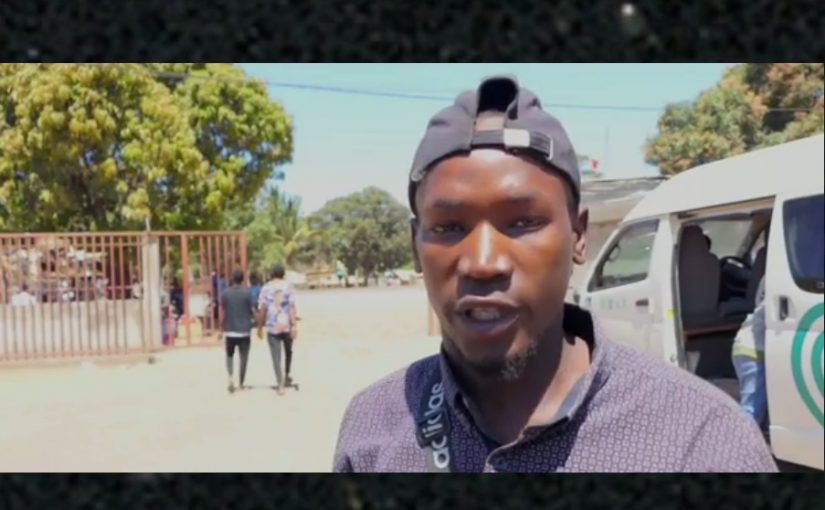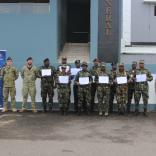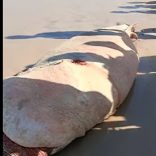Mozambique: Unidentified ship immobilized off Xai-Xai beach - report
Cabo Delgado: Drivers do double speed limit on ‘corridor of terror’ road

Screen grab: Lusa
Mozambican passenger carrier Nelson Mário escaped the terrorist attacks on the road between Meluco and Macomia, and today, despite the relative calm in Cabo Delgado, he continues to drive fast on the so-called “terror corridor”.
“We are afraid when we travel,” the young driver tells Lusa, as he waits for more people at the passenger transport terminal in Pemba, the provincial capital of Cabo Delgado, northern Mozambique.
It’s almost 2 p.m. and, despite more than a year without any incidents on the road and the stabilisation of the security situation in the province, Nelson Mário knows he can’t travel at night, especially on the “terror corridor”, as the stretch between Meluco and Macomia was nicknamed at the peak of the armed attacks in Cabo Delgado.
“Today, there are points where we have to use escorts to cross. We didn’t have that a long time ago,” says the haulier, who has been travelling the route between the provincial capital of Cabo Delgado (Pemba) and Macomia for almost six years, despite interruptions at the peak of the attacks.
On the route of more than 200 kilometres that separates Pemba from the district headquarters of Macomia, passing through Meluco, fear is a common denominator for those in Nelson’s van, given that the stretch has been the scene of several attacks by insurgent groups, with even unaccounted for deaths.
Nelson, 28, is one of the many drivers who have to work up the courage to survive, but on the 90 or so kilometres that separate Meluco from Macomia, it’s still necessary, for safety’s sake, to “hit the accelerator hard”, sometimes reaching 140 kilometres per hour, almost double the maximum limit.
Worse than that, he adds, is the lack of a “logical explanation” for a war whose main victims are people living on the edge of poverty.
“We don’t understand what’s going on. We don’t see what we’ve done,” said the driver, who was born and raised in Mocímboa da Praia, where the rebels carried out their first attack in October 2017.
The same lack of answers from those trying to understand the conflict haunts Orlando Augusto, 32, the “collector” of Nelson’s van.
“Most people don’t accept that this war situation is over. We ourselves have doubts, we’re travelling at our peril,” admits the van’s collector, who also regrets the lack of a clear cause for the conflict.
“I don’t understand the cause of all this terror. It’s incomprehensible,” he laments.
The province of Cabo Delgado has been facing an armed insurgency for six years, with some attacks claimed by the extremist group Islamic State.
While explanations about the causes of the conflict are still lacking, life in Cabo Delgado seems to be timidly taking shape again since the arrival of foreign forces that have been supporting the Mozambican army in the fight against the rebels.
The insurgency has led to a military response since July 2021 with support from Rwanda and the Southern African Development Community (SADC), liberating districts near the gas projects, but new waves of attacks have emerged in the south of the region and in neighbouring Nampula province.
The conflict has already displaced a million people, according to the United Nations High Commissioner for Refugees (UNHCR), and caused around 4,000 deaths, according to the ACLED conflict registration project.













Leave a Reply
Be the First to Comment!
You must be logged in to post a comment.
You must be logged in to post a comment.